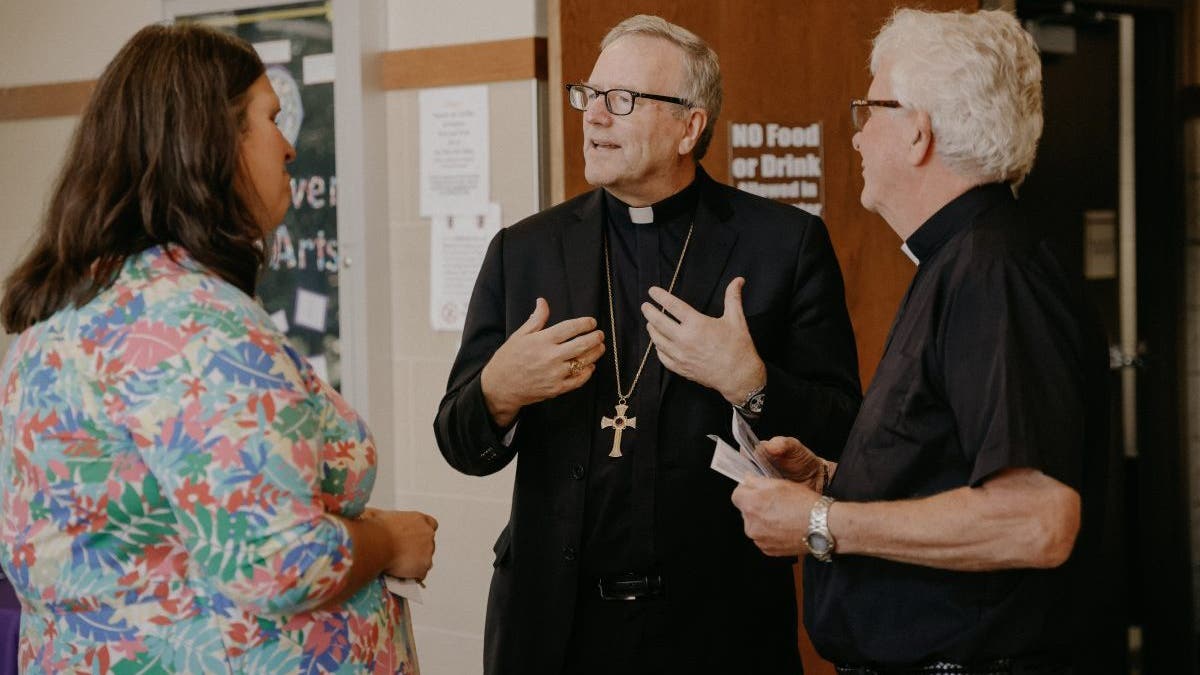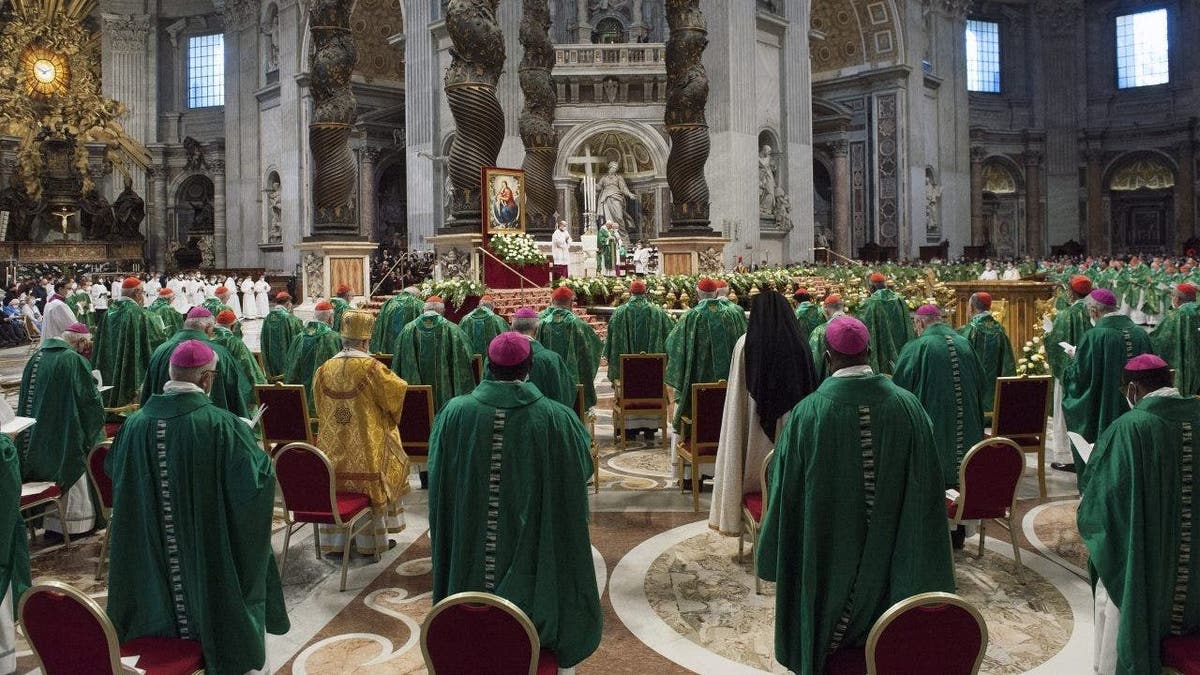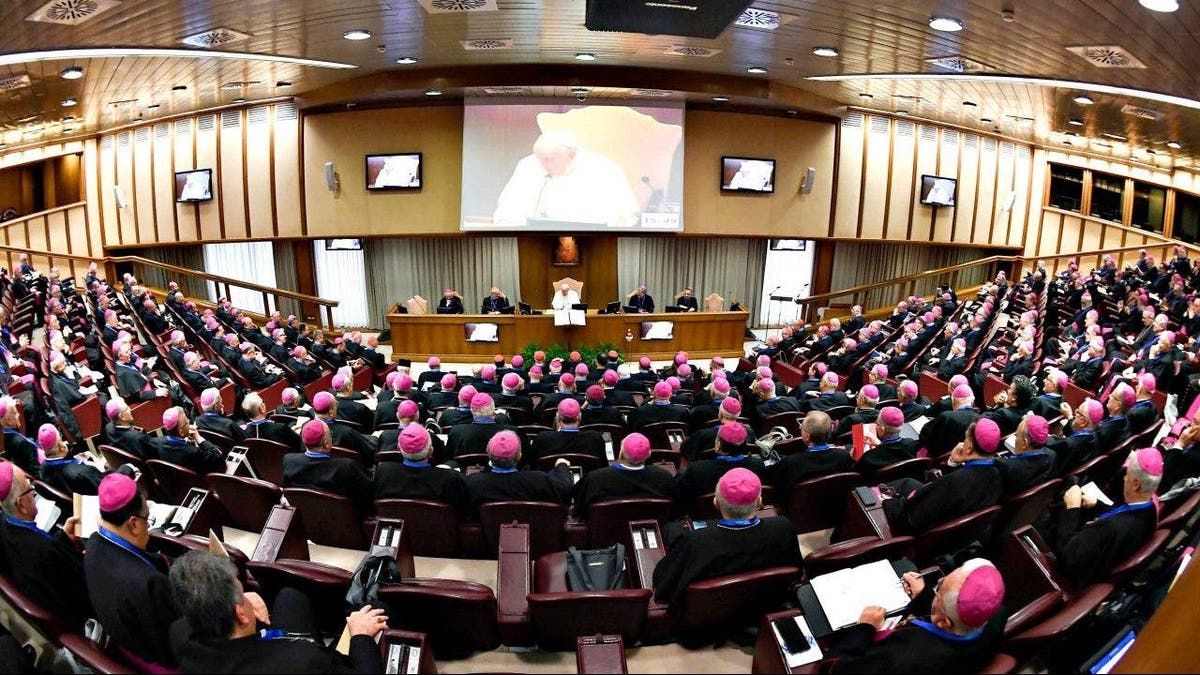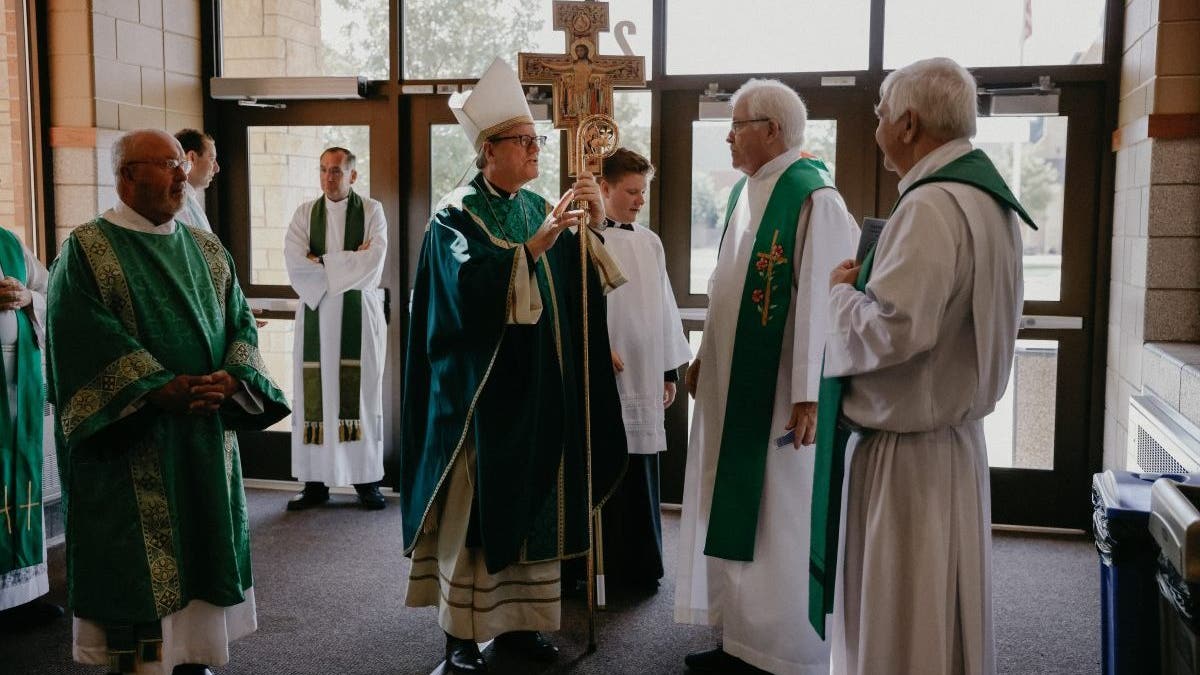Fox News Flash top headlines for July 7
Fox News Flash top headlines are here. Check out what's clicking on Foxnews.com.
Bishop Robert Barron is asking Catholics to "take the pope at his word" that the Vatican's upcoming "Synod on Synodality" is an advisory council, "not a democratic process" to change doctrine.
The Catholic press exploded with speculation and commentary after the Vatican published its list of international delegates for the final phase of the Synod on Synodality — a worldwide meeting of Catholic leaders that promises to set the tone of the church for years to come.
Barron, of the Dioceses of Winona-Rochester, 63, was announced Friday as a US delegate to the Synod. Barron was nominated by fellow members of the United States Conference of Catholic Bishops (USCCB) alongside four others: Cardinal Timothy Dolan, Bishop Daniel Flores, Bishop Kevin Rhoades, and Archbishop Timothy Broglio.
In addition to the USCCB's own internal appointments, there are several American delegates hand-selected by Pope Francis himself. Some of them are prominent advocates for changing long-established social teaching in the Catholic Church.
CATHOLICVOTE LAUNCHES $1M CAMPAIGN CALLING FOR LA DODGERS BOYCOTT OVER ANTI-CATHOLIC DRAG QUEENS

Bishop Robert Barron of the Diocese of Winona-Rochester, Minnesota (Center) speaks with others. Bishop Barron was selected as a US delegate to the Synod. (Word on Fire Ministries)
Notably included was Fr. James Martin, an American Jesuit priest known primarily for his work challenging the Catholic Church to reconsider its teachings on homosexual relationships and transgenderism.
Barron said he was not concerned about ideological slants at the meeting, pointing to conservative prelates also directly appointed by the pope, such as Bishop Stefan Oster of Germany.
"I think the American delegation, if you look at the whole thing, kind of balances out ideologically. So I think that's what the pope seems to like," Barron told Fox News Digital in an exclusive interview.
Barron continued, "He is something of the Jesuit seminar table. Let's get a lot of voices around the table, let's all have a big debate about something. So that's what I see in at least a preliminary look at the lineup."
The 16th Ordinary General Assembly of the Synod of Bishops is set to bring together cardinals, bishops, priests, religious brothers, nuns, and laity from around the world in October to discuss the Catholic Church in the modern day and how best to move forward as a global community.
The meeting will re-convene a year later in October 2024 to draft a final document of suggestions on church governance for consideration by the pope.
Pope Francis will be free to adopt, critique, or outright reject any of the final document's suggestions.
"Once the approval of the members has been obtained, the Final Document of the Assembly is presented to the Roman Pontiff, who decides on its publication," the Vatican explained at the beginning of the process. "If it is expressly approved by the Roman Pontiff, the Final Document participates in the ordinary Magisterium of the Successor of Peter."
The synod's stated purpose of fostering greater cooperation and global community among Catholics worldwide has led it to be informally dubbed "The Synod on Synodality."
However, Pope Francis has said that the Synod should not be characterized as a "parliament for demanding rights" — he instead called it "a journey in accordance with the Spirit."
POPE FRANCIS GIVES WOMEN THE RIGHT TO VOTE AT MEETING OF BISHOPS

Pope Francis celebrates Holy Mass on the occasion of the opening of the XVI Ordinary General Assembly of the Synod of Bishops "For a synodal Church: communion, participation and mission." (Vatican Pool Galazka/Mondadori Portfolio via Getty Images)
Barron said that diverse opinions were being recruited to make the Synod as representative of the current church as possible.
"The pope has said it over and over and over again in the lead up to the Synod — that the Synod is not a parliament, not a democratic process. We're not voting on doctrine," Barron told Fox News Digital.
"It's much more about strategy," the bishop continued. "A lot of people, at least in the West, I think, feel alienated from the church for different reasons. And are there better strategies we can adopt to reach out to them and reengage them and so on? I think that's what we'll be talking about. So I'll take the pope at his word. I don't think we're discussing doctrine."
While Barron's episcopal office primarily concerns his parishes in Minnesota, his public influence stretches around the world via his books, videos, radio shows and documentaries with his Word on Fire ministries.
Barron — who rejects labels such "progressive" or "conservative" to describe his theology and ministry — has championed a return to Catholic orthodoxy through education and engagement.
BISHOP ROBERT BARRON: 'DUMBED DOWN CATHOLICISM HAS NOT HELPED EVANGELIZATION'
Barron said his participation in the synodal process over the past few years — attending meetings and participating in organized discussions — has been thoroughly positive.
He previously spent a month in Rome for the synodal process and kept minutes for his English language group.
"I was pretty involved in that whole process and I liked it. It was a lot of work," Barron told Fox News Digital. "And you're with the pope every day. He was there pretty much every day."

Pope Francis attends the opening of the 77th General Assembly of the CEI (Italian Episcopal Conference) at the Synod Hall in Vatican City, Vatican. (Vatican Media via Vatican Pool/Getty Images)
Barron says his biggest desire for the culmination of the process is a more compelling plan for evangelization in the modern age, which he believes has been the ultimate goal of every pope since the Second Vatican Council, sometimes referred to as "Vatican II."
Barron has previously asserted that following the conclusion of the Second Vatican Council in 1965, many clergy and laity misunderstood or disregarded the actual reforms of the council and shifted their focus from theology to charity in a bid to appeal to those outside the church.
"The church was often reduced to ethics and more precisely, to social justice. Nothing wrong with ethics or social justice, but it was a kind of reductionism and the doctrinal element was underplayed," Barron said in a previous interview with Fox News Digital. "A caving in to the very relativistic culture held sway. So that's been a problem for a long time."
Barron said he believes the Synod on Synodality is only the latest step in sharpening the church's ability to carry out its evangelizing mission.
CLICK HERE TO GET THE FOX NEWS APP

Bishop Robert Barron of the Diocese of Winona-Rochester, Minnesota, speaking with priests and seminarians before mass (Word on Fire Ministries)
"I think coming out of Vatican II that's been the clear goal of all the popes, including Francis — ‘How do we make our message more compelling to people?’" Barron said. "And if they're feeling alienated from the church, well, that's a problem. We have to find a way to reach out to them and reengage them for the sake of the mission. Again, I am a Pope Francis guy here. He said from the beginning, 'a church that goes out from itself.' He wants a church that's not stuck in the sacristy, goes out into the hall, gets a joyful message of the Gospel."
The bishop continued, "He talked about how the oil of priestly ordination should not just stay stuck on the vestments of the priest, but should kind of flow out from them into the world. That's what I think is great, and the Synod helps us do that more effectively, and I think it will accomplish its goal."
The Synod will convene for its first meeting in October of this year. The council will adjourn and reconvene in October 2024 for its final conference.










































